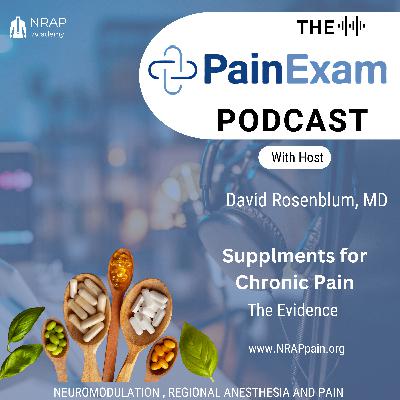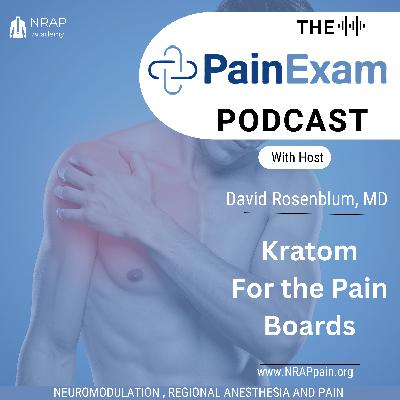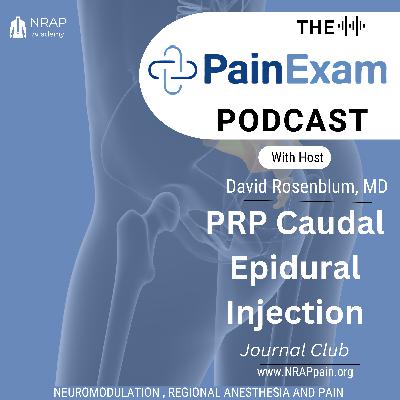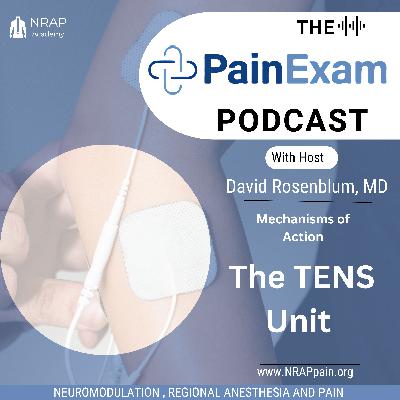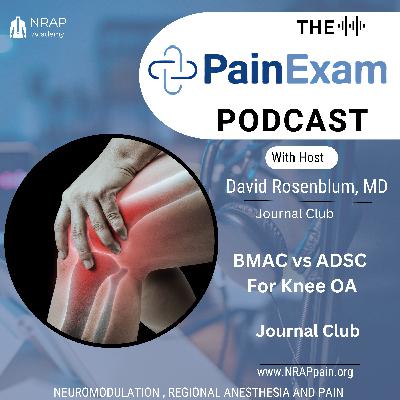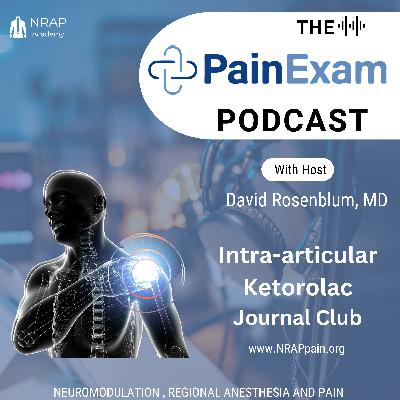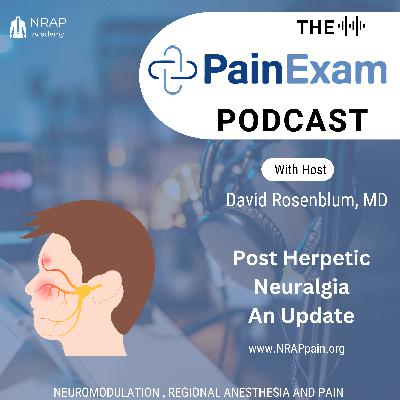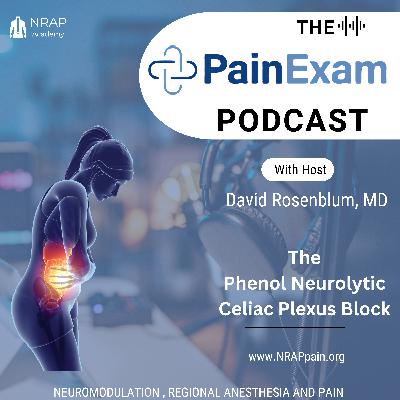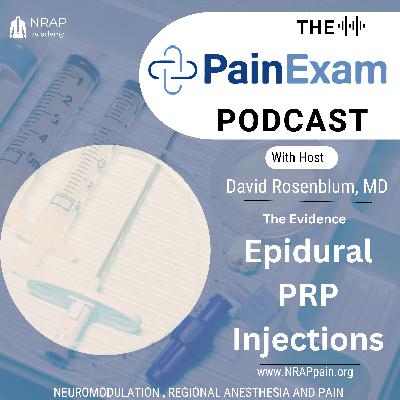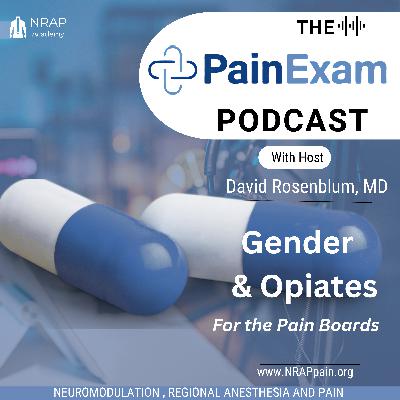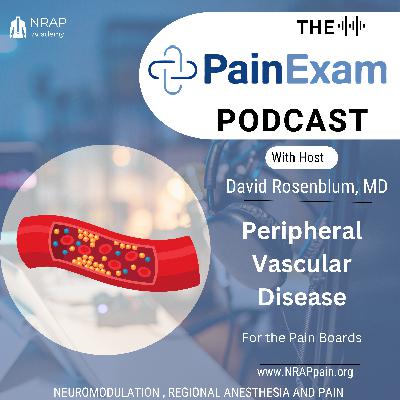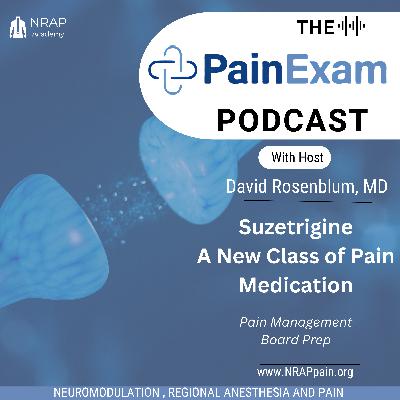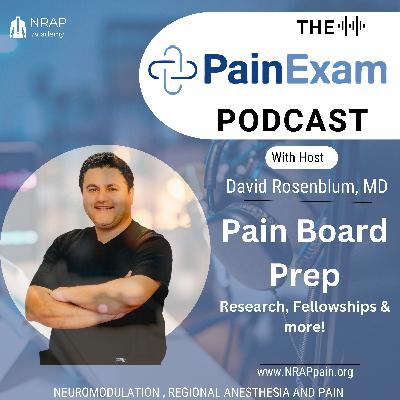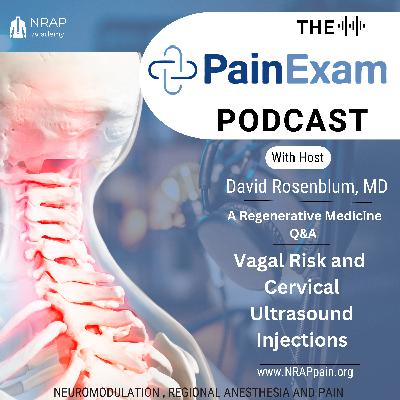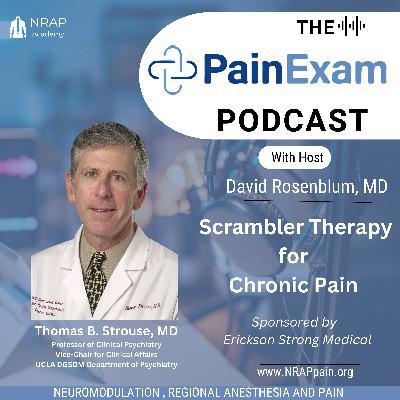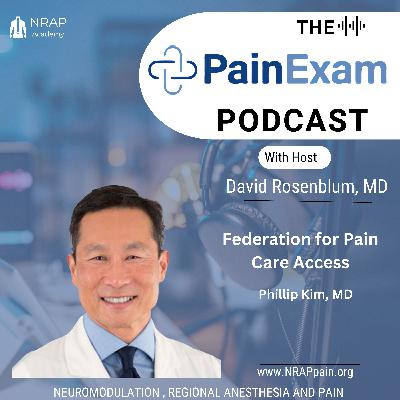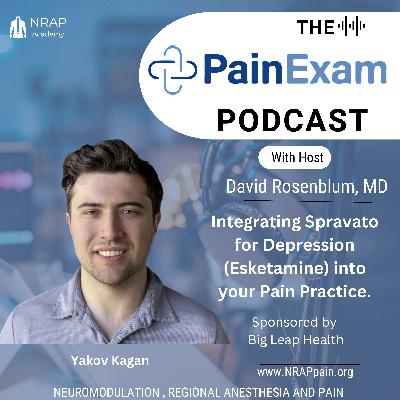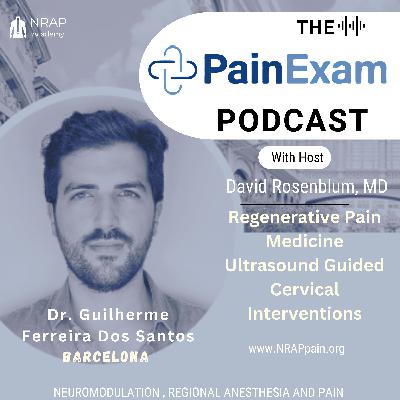Supplements for Pain: Does the Evidence Support it?
Description
Episode Overview
In this episode, Dr. David Rosenblum discusses the role of supplements and complementary strategies in the management of chronic pain. Drawing from clinical practice at AABP Integrative Pain Care, as well as his teaching and training programs, Dr. Rosenblum reviews how nutraceuticals, regenerative therapies, ultrasound-guided procedures, and neuromodulation can work together to improve patient outcomes and reduce opioid reliance.
This episode also highlights educational opportunities and exam-prep resources for pain fellows, residents, anesthesiologists, physiatrists, and APPs looking to expand their interventional pain, ultrasound, and regenerative medicine skill sets.
Key Topics Discussed
-
Evidence and clinical rationale for select supplements in chronic pain management
-
The role of ultrasound guidance in improving accuracy and safety in interventional pain procedures
-
How regenerative medicine techniques such as PRP and BMAC are shaping personalized pain care
-
Practical considerations when combining supplements with neuromodulation, RFA, or injections
-
Patient case applications and real-world treatment planning
Educational Offerings & Learning Opportunities
PainExam / NRAP Academy Training & Programs:
-
Neuromodulation & Regional Anesthesia Workshops
-
Ultrasound-Guided Pain Procedures
-
Regenerative Pain Medicine Training
-
Virtual Pain Fellowship
-
Pain Management Board Review & Question Banks
Learn More / Register:
www.AABPpain.com
🔹 https://PainExam.com
🔹 https://NRAPpain.org
Board Prep & Certification Support
Prepare for:
-
ABA Pain Boards
-
ABPM
-
ABIPP
-
Pain Management Board Certification Exams
-
(No reference to FIPP included, per request)
Access Board Prep Courses & Q-Banks:
➡️ https://PainExam.com
➡️ https://NRAPpain.org
Clinical Practice
AABP Integrative Pain Care (Brooklyn & Great Neck, NY)
To schedule a consultation or referral:
🌐 https://AABPpain.com
📞 Brooklyn: 718-436-7246
About the Host – David Rosenblum, MD
Dr. Rosenblum serves as Director of Pain Management at Maimonides Medical Center and Managing Partner at AABP Integrative Pain Care in Brooklyn, NY. He is recognized as an early adopter and leading educator in ultrasound-guided pain procedures, neuromodulation, and regenerative medicine.
He has:
-
Developed regional anesthesia training programs
-
Published widely in pain medicine literature
-
Lectured nationally and internationally through ASIPP, ASPN, NANS, IASP, and more
-
Helped over 3000 physicians pass pain board exams
-
Hosted the PainExam, AnesthesiaExam, and PMRExam podcasts
Awards (Selected):
-
New York Magazine Top Doctors: 2016–2025
-
Top Doctors NY Metro Area: 2016–2025
-
Schneps Media Honors: Multiple Years
Connect with Dr. Rosenblum
-
Instagram: https://www.instagram.com/painexam/
-
X (Twitter): https://x.com/AlgoSonic
Practical Takeaways
- Evidence strength varies widely; preclinical support is more robust than human RCT data for most supplements.
- Potentially reasonable adjuncts in select contexts
- Vitamin D: plausible benefit in deficiency states, including diabetic neuropathy and chronic pain-related quality-of-life factors; confirm deficiency and monitor.
- Magnesium: consider IV regimens for refractory neuropathic components (e.g., cancer pain, PHN); oral efficacy uncertain.
- Curcumin: consider as adjunct, especially formulated phytosome combinations; monitor for additive effects and tolerability.
- B vitamins: consider B12 in deficiency or neuropathy with suspected demyelination; overall human evidence limited.
- Zinc: mechanistic rationale with preclinical support; limited human data—consider deficiency correction rather than supraphysiologic dosing.
- Cautions and contraindications
- St. John's wort: significant drug–drug interaction potential via CYP/P-gp induction.
- Alpha lipoic acid: may cause hypoglycemia; monitor glucose, especially in diabetes.
- Agent-specific toxicity thresholds should guide safe upper limits; prioritize lab-confirmed deficiencies.
Risks, Limitations, and Research Gaps
- Heterogeneity in study designs, small samples, lack of controls, and multi-ingredient formulations limit causal inference.
- Need for large, well-designed RCTs stratified by neuropathic pain etiology (e.g., CIPN vs. DPN vs. PHN) with standardized outcomes.
- Translational gap between animal models and human clinical efficacy remains significant.
References
Frediani, Jennifer K., et al. "The role of diet and non‐pharmacologic supplements in the treatment of chronic neuropathic pain: A systematic review." Pain Practice 24.1 (2024): 186-210.
Huang, Wei MD, PhD*,†; Shah, Shivani DO†; Long, Qi PhD‡; Crankshaw, Alicia K. MD†; Tangpricha, Vin MD, PhD§,∥. Improvement of Pain, Sleep, and Quality of Life in Chronic Pain Patients With Vitamin D Supplementation. The Clinical Journal of Pain 29(4):p 341-347, April 2013. | DOI: 10.1097/AJP.0b013e318255655d
Haddad, H.W., Mallepalli, N.R., Scheinuk, J.E. et al. The Role of Nutrient Supplementation in the Management of Chronic Pain in Fibromyalgia: A Narrative Review. Pain Ther 10, 827–848 (2021). https://doi.org/10.1007/s40122-021-00266-9
Abdelrahman, K.M.; Hackshaw, K.V. Nutritional Supplements for the Treatment of Neuropathic Pain. Biomedicines 2021, 9, 674. https://doi.org/10.3390/biomedicines9060674

